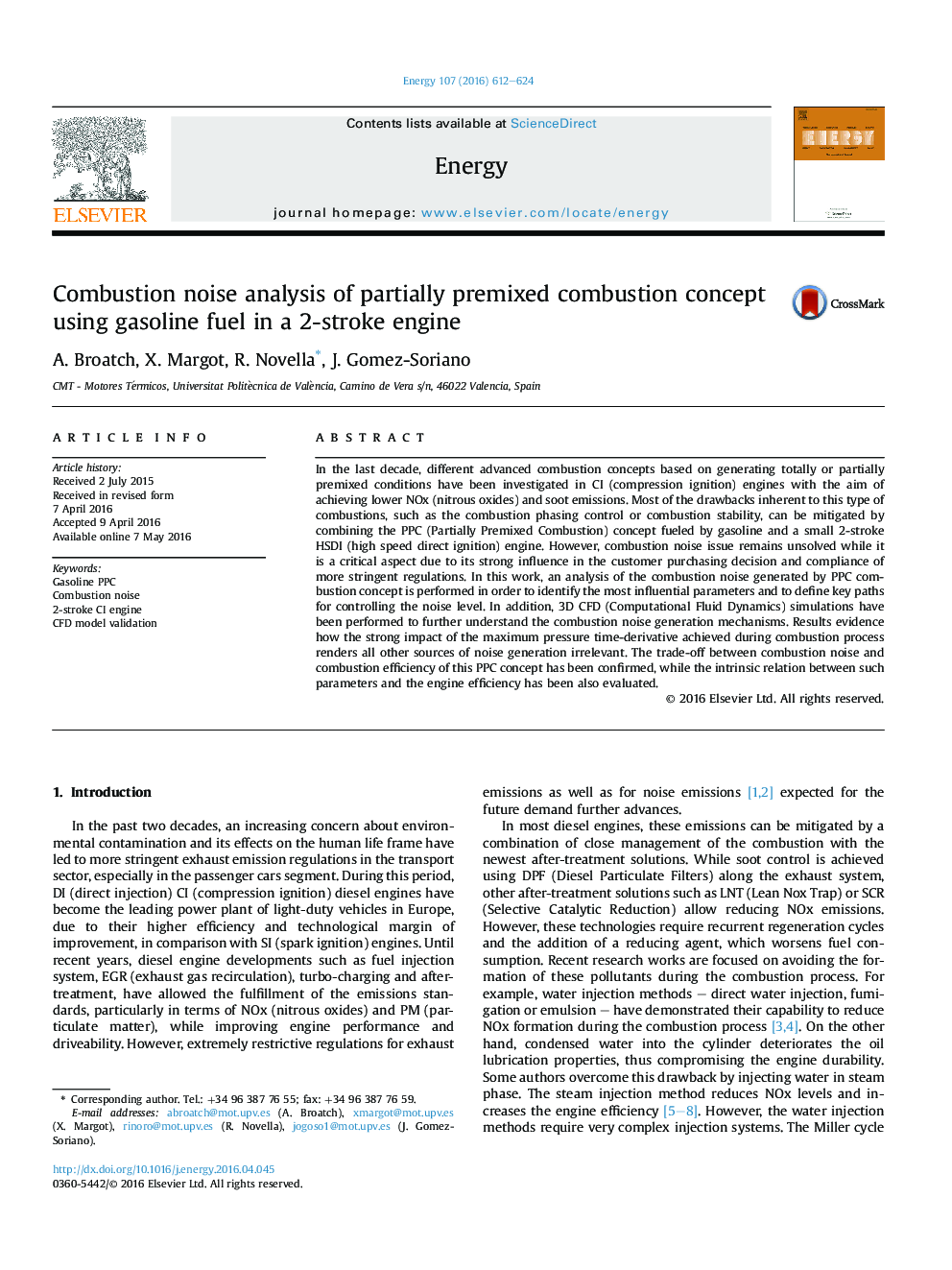| Article ID | Journal | Published Year | Pages | File Type |
|---|---|---|---|---|
| 1730867 | Energy | 2016 | 13 Pages |
•This investigation focuses on a combustion noise analysis of the gasoline PPC concept.•The concept was implemented in an innovative 2-stroke HSDI CI engine.•Both NOx and soot emissions are easily controlled but noise levels are unacceptable.•The trade-off between combustion noise and engine efficiency has been confirmed.•The impact of the RoHR (rate of heat release) shape on the previous trade-off has been discussed in detail.
In the last decade, different advanced combustion concepts based on generating totally or partially premixed conditions have been investigated in CI (compression ignition) engines with the aim of achieving lower NOx (nitrous oxides) and soot emissions. Most of the drawbacks inherent to this type of combustions, such as the combustion phasing control or combustion stability, can be mitigated by combining the PPC (Partially Premixed Combustion) concept fueled by gasoline and a small 2-stroke HSDI (high speed direct ignition) engine. However, combustion noise issue remains unsolved while it is a critical aspect due to its strong influence in the customer purchasing decision and compliance of more stringent regulations. In this work, an analysis of the combustion noise generated by PPC combustion concept is performed in order to identify the most influential parameters and to define key paths for controlling the noise level. In addition, 3D CFD (Computational Fluid Dynamics) simulations have been performed to further understand the combustion noise generation mechanisms. Results evidence how the strong impact of the maximum pressure time-derivative achieved during combustion process renders all other sources of noise generation irrelevant. The trade-off between combustion noise and combustion efficiency of this PPC concept has been confirmed, while the intrinsic relation between such parameters and the engine efficiency has been also evaluated.
